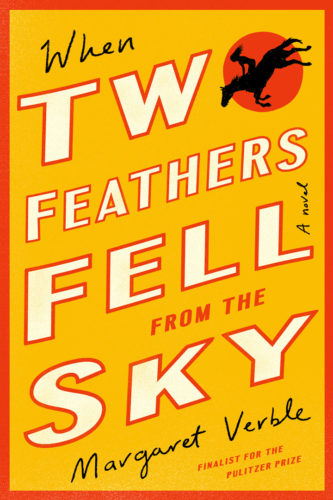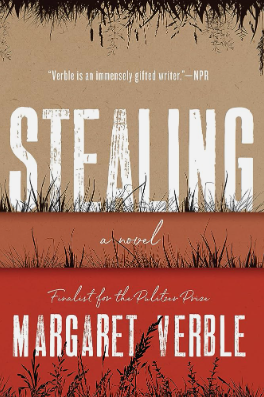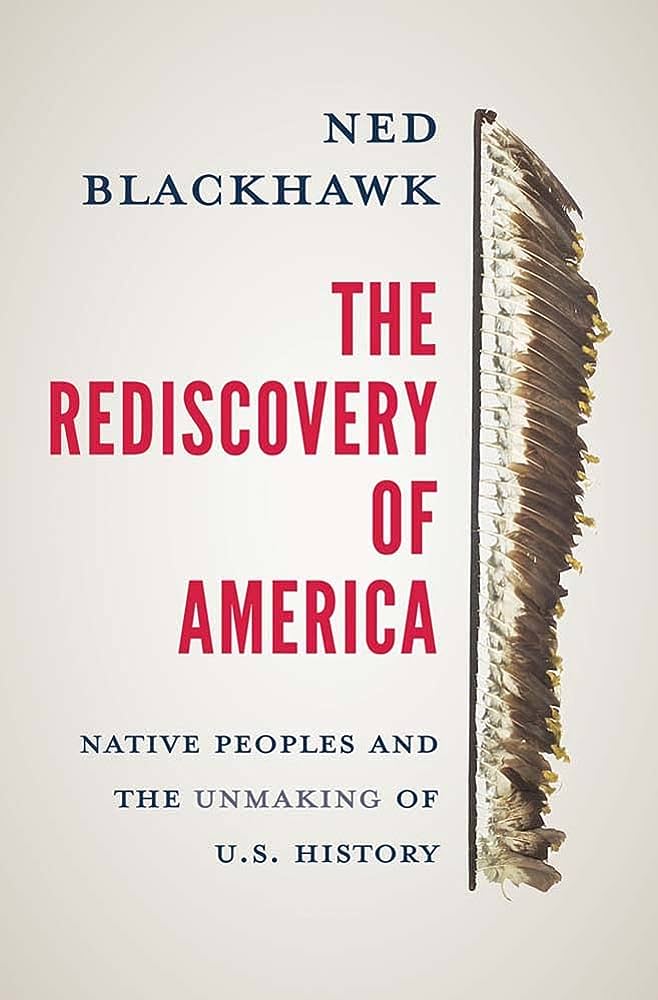 What book combines the obscure art of horse diving, otherworldly hauntings, unusual animals, World War I veterans and Wild West shows, all taking place under the long shadow of Manifest Destiny and racial segregation in America? Look no further than this year’s One Read book, “When Two Feathers Fell From the Sky” by Margaret Verble. The novel, Verble’s third, is a wildly entertaining but also compassionate examination of the treatment of those on the margins of society in early 20th century America, a time when the tenets of a humanistic progressivism were all too slowly supplanting long-held beliefs about race and gender.
What book combines the obscure art of horse diving, otherworldly hauntings, unusual animals, World War I veterans and Wild West shows, all taking place under the long shadow of Manifest Destiny and racial segregation in America? Look no further than this year’s One Read book, “When Two Feathers Fell From the Sky” by Margaret Verble. The novel, Verble’s third, is a wildly entertaining but also compassionate examination of the treatment of those on the margins of society in early 20th century America, a time when the tenets of a humanistic progressivism were all too slowly supplanting long-held beliefs about race and gender.
In her other novels, “Maud’s Line,” “Cherokee America” and “Stealing: A Novel” Verble does not shy away from offering entertaining narratives and characters alongside unsparingly realistic narratives about the displacement, violence and marginalization aimed at Native Americans in the United States in the late 19th and early 20th century. Verble herself is a registered member of the Cherokee Nation, and each book asks one overarching question: What is it like to be a member of a nation of people, with immense territory and a complex and advanced civilization, and to have all of that stripped away by an often violent, racist and land-greedy government?
“Maud’s Line,” sketches out the loneliness and deprivation experienced by one young Cherokee woman living in territorial Oklahoma in the early 1900s. But Verble’s first novel is also a love letter to the strength of family, with Maud herself a model of hope and resilience. Maud’s mother felt that, in the end, families would “do whatever had to be done. She’d often said that none of them would be alive if their old folks had given up on the trail.”
Verble’s second book, “Cherokee America,” examines the conflicts that occurred between settlers and Cherokees in territorial Oklahoma, conflicts mediated by an untrustworthy federal government in the late 19th century. Broken treaties and forgotten promises served as actual policy, and land was continually stripped from the Cherokee Nation after they were “resettled” in Oklahoma’s bleak plains. Most were eventually coerced to live on even bleaker Indian reservations.
 Her latest novel, “Stealing,” is even starker, recounting the removal of a Cherokee child from his family who was subsequently sent to a Christian boarding school. This was a tragedy that befell thousands of Native children in America for over 100 years, and many communities are still grappling with that legacy today. Organizations such as the National Native Boarding Schooling Healing Coalition are attempting to heal the deep wounds and generational trauma caused.
Her latest novel, “Stealing,” is even starker, recounting the removal of a Cherokee child from his family who was subsequently sent to a Christian boarding school. This was a tragedy that befell thousands of Native children in America for over 100 years, and many communities are still grappling with that legacy today. Organizations such as the National Native Boarding Schooling Healing Coalition are attempting to heal the deep wounds and generational trauma caused.
To grasp the full scope of the tragic history of the resettlement of Cherokees, nonfiction makes a good complement to Verble’s historical fiction. I especially recommend John Elhle’s classic “Trail of Tears: The Rise and Fall of the Cherokee Nation,” recounting the earliest and often peaceful interactions between white settlers and the Cherokee Nation and the legacy of powerful, diplomatic Cherokee leaders such as Chief Kulsatahee and Major Ridge. This hopeful period was followed by years of betrayal and poor treatment, and culminated in the final monstrous and genocidal Trail of Tears march from ancestral Cherokee land in the Southeastern U.S. to the Oklahoma territories. Although nearly 35 years old, like “Bury My Heart at Wounded Knee,” “Trail of Tears” is a timeless testament to a tragic period in our history.
Remarkably, Verble’s fictional narratives are among the few recently published accounts of life in the Cherokee Nation, although broader scholarship continues, including “The Rediscovery of America: Native Peoples and the Unmaking of American History” by Ned Blackhawk. History books are replete with the history of white settlement, while often sidelining or completely neglecting the Native experience. Blackhawk’s book is one of the first salvos in trying to remedy this situation, much like the groundbreaking 1619 Project is for Black Americans, placing Natives in their rightful position, front and center in the American experience.


